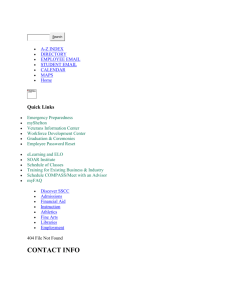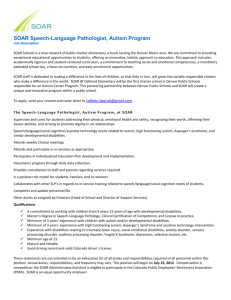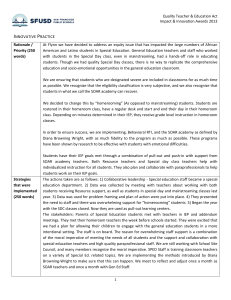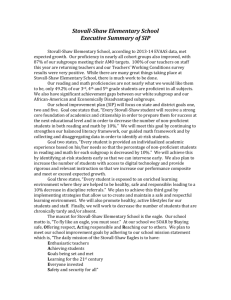gSKI Summary Document
advertisement
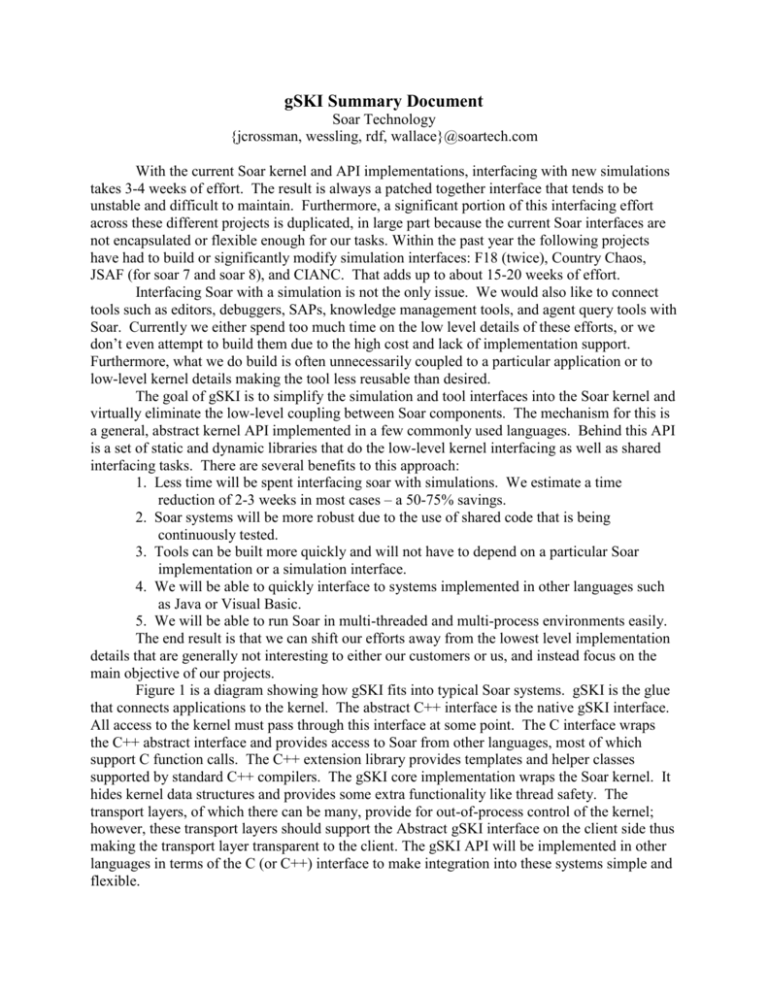
gSKI Summary Document
Soar Technology
{jcrossman, wessling, rdf, wallace}@soartech.com
With the current Soar kernel and API implementations, interfacing with new simulations
takes 3-4 weeks of effort. The result is always a patched together interface that tends to be
unstable and difficult to maintain. Furthermore, a significant portion of this interfacing effort
across these different projects is duplicated, in large part because the current Soar interfaces are
not encapsulated or flexible enough for our tasks. Within the past year the following projects
have had to build or significantly modify simulation interfaces: F18 (twice), Country Chaos,
JSAF (for soar 7 and soar 8), and CIANC. That adds up to about 15-20 weeks of effort.
Interfacing Soar with a simulation is not the only issue. We would also like to connect
tools such as editors, debuggers, SAPs, knowledge management tools, and agent query tools with
Soar. Currently we either spend too much time on the low level details of these efforts, or we
don’t even attempt to build them due to the high cost and lack of implementation support.
Furthermore, what we do build is often unnecessarily coupled to a particular application or to
low-level kernel details making the tool less reusable than desired.
The goal of gSKI is to simplify the simulation and tool interfaces into the Soar kernel and
virtually eliminate the low-level coupling between Soar components. The mechanism for this is
a general, abstract kernel API implemented in a few commonly used languages. Behind this API
is a set of static and dynamic libraries that do the low-level kernel interfacing as well as shared
interfacing tasks. There are several benefits to this approach:
1. Less time will be spent interfacing soar with simulations. We estimate a time
reduction of 2-3 weeks in most cases – a 50-75% savings.
2. Soar systems will be more robust due to the use of shared code that is being
continuously tested.
3. Tools can be built more quickly and will not have to depend on a particular Soar
implementation or a simulation interface.
4. We will be able to quickly interface to systems implemented in other languages such
as Java or Visual Basic.
5. We will be able to run Soar in multi-threaded and multi-process environments easily.
The end result is that we can shift our efforts away from the lowest level implementation
details that are generally not interesting to either our customers or us, and instead focus on the
main objective of our projects.
Figure 1 is a diagram showing how gSKI fits into typical Soar systems. gSKI is the glue
that connects applications to the kernel. The abstract C++ interface is the native gSKI interface.
All access to the kernel must pass through this interface at some point. The C interface wraps
the C++ abstract interface and provides access to Soar from other languages, most of which
support C function calls. The C++ extension library provides templates and helper classes
supported by standard C++ compilers. The gSKI core implementation wraps the Soar kernel. It
hides kernel data structures and provides some extra functionality like thread safety. The
transport layers, of which there can be many, provide for out-of-process control of the kernel;
however, these transport layers should support the Abstract gSKI interface on the client side thus
making the transport layer transparent to the client. The gSKI API will be implemented in other
languages in terms of the C (or C++) interface to make integration into these systems simple and
flexible.
Required/Mutable
Other
Application
/SSI
C
Application
/SSI
C++
Application
/SSI
Optional/Immutable/Extendable
TCL/gSKI
API
Java/gSKI
API
C++ Interface
Layer
Extensions
Lua/gSKI
API
C Wrapper
Abstract C++ Interface
C++ Interface
Layer
Client Socket
Transport Layer
Required/Immutable
C++ Interface
Layer
Client COM
Transport Layer
Optional/Mutable/
Extendable
Server
Transport Layer
Sockets
Connecting
lines represent
paths of
control and
access
Server
Transport Layer
COM
gSKI Core Implementation
Required/
Mutable
Required/Optional
This indicates whether
or not this component is
needed to build a gSKI
application.
Kernel
Mutable/Immutable
This indicates whether or
not the component can be
modified or replaced as
part of a gSKI application.
Extendable
This indicates that
more components of
the given type may
be added.
Exists
Current Work
Future Work
Figure 1: gSKI and Soar systems. gSKI is really an API and is implemented at several levels. The core
implementation is the Abstract C++ Interface and its underlying implementation.


